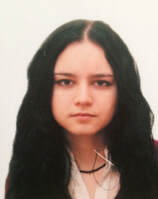University Libraries in Finland and Russia
To carry out your PhD research in Finland is to enjoy the advantages of the country’s advertence to the library services. Once you receive a library card, you cannot anymore claim that you are stuck in your study because of the poor opportunities for data mining. If your supervisor says that your study is not novel, do not use this excuse – it will not work.
As an international PhD student at the University of Eastern Finland, I came to immediately appreciate Finnish library services. While in Russia, I worked at my Master’s thesis in English literature and if I could not find a way to download the book I needed in the Internet, I had to order it from Amazon. What I found in Finland when I got my postgraduate study right is not only large databases and vast amount of digitalized resources, but also an opportunity to request the books I need.
As long as I have my UEF account, I can search for materials using different databases, access to which is provided by the university. The easiest way to search for articles is to visit Nelliportaali that offers both simple and advanced searches. To search for books is best from the UEF’s library database JOSKU. It provides the information about resources in all the three university campuses. The functioning of JOSKU is well elaborated as students can borrow books and renew them via their accounts on the website, while the majority of large libraries in Russia are reluctant to loan the books. It is noteworthy, that both Nelli and Josku pages are available in English. Russian databases do not usually bother with pages in English, except for perhaps Online Catalog of the Library for foreign literature.
Over the last decade a great amount of resources at UEF were digitalized: today if you have access to JOSKU you can often get an e-version of the book. Moreover, UEF provides access to the scientific journals outside its own library in case the university has obtained subscription rights. As long as not all resources are digitalized yet, if one needs a book which is located at another campus, he or she can use fetching service. As my research is interdisciplinary, I needed one medical journal, hard copies of which are located in Kuopio. As there was no access to digitalized versions of it, I had an opportunity to order the needed journals to Joensuu.
Still the most amazing thing about Finnish libraries is the right to send an acquisition request in case some relevant book is not in the library. I must admit I’ve sent about 7 of them already, and I got the books in about 2 weeks. I know that PhD candidates can hardly participate in extending library collections at universities even in Moscow.
What I know for sure now is that Finland’s high quality of education is not least of all due to its well-developed library services. No one would argue that it is a pleasure to do science when university provides you with all the resources you could dream of.
As an international PhD student at the University of Eastern Finland, I came to immediately appreciate Finnish library services. While in Russia, I worked at my Master’s thesis in English literature and if I could not find a way to download the book I needed in the Internet, I had to order it from Amazon. What I found in Finland when I got my postgraduate study right is not only large databases and vast amount of digitalized resources, but also an opportunity to request the books I need.
As long as I have my UEF account, I can search for materials using different databases, access to which is provided by the university. The easiest way to search for articles is to visit Nelliportaali that offers both simple and advanced searches. To search for books is best from the UEF’s library database JOSKU. It provides the information about resources in all the three university campuses. The functioning of JOSKU is well elaborated as students can borrow books and renew them via their accounts on the website, while the majority of large libraries in Russia are reluctant to loan the books. It is noteworthy, that both Nelli and Josku pages are available in English. Russian databases do not usually bother with pages in English, except for perhaps Online Catalog of the Library for foreign literature.
Over the last decade a great amount of resources at UEF were digitalized: today if you have access to JOSKU you can often get an e-version of the book. Moreover, UEF provides access to the scientific journals outside its own library in case the university has obtained subscription rights. As long as not all resources are digitalized yet, if one needs a book which is located at another campus, he or she can use fetching service. As my research is interdisciplinary, I needed one medical journal, hard copies of which are located in Kuopio. As there was no access to digitalized versions of it, I had an opportunity to order the needed journals to Joensuu.
Still the most amazing thing about Finnish libraries is the right to send an acquisition request in case some relevant book is not in the library. I must admit I’ve sent about 7 of them already, and I got the books in about 2 weeks. I know that PhD candidates can hardly participate in extending library collections at universities even in Moscow.
What I know for sure now is that Finland’s high quality of education is not least of all due to its well-developed library services. No one would argue that it is a pleasure to do science when university provides you with all the resources you could dream of.

BY: Ekaterina Prosandeeva
PhD candidate,
Philosophical faculty, School of Humanities
Doctoral programme for social and cultural encounters, University of Eastern Finland
This story has been published in Karjalainen newspaper and produced by JoMoni
PhD candidate,
Philosophical faculty, School of Humanities
Doctoral programme for social and cultural encounters, University of Eastern Finland
This story has been published in Karjalainen newspaper and produced by JoMoni
